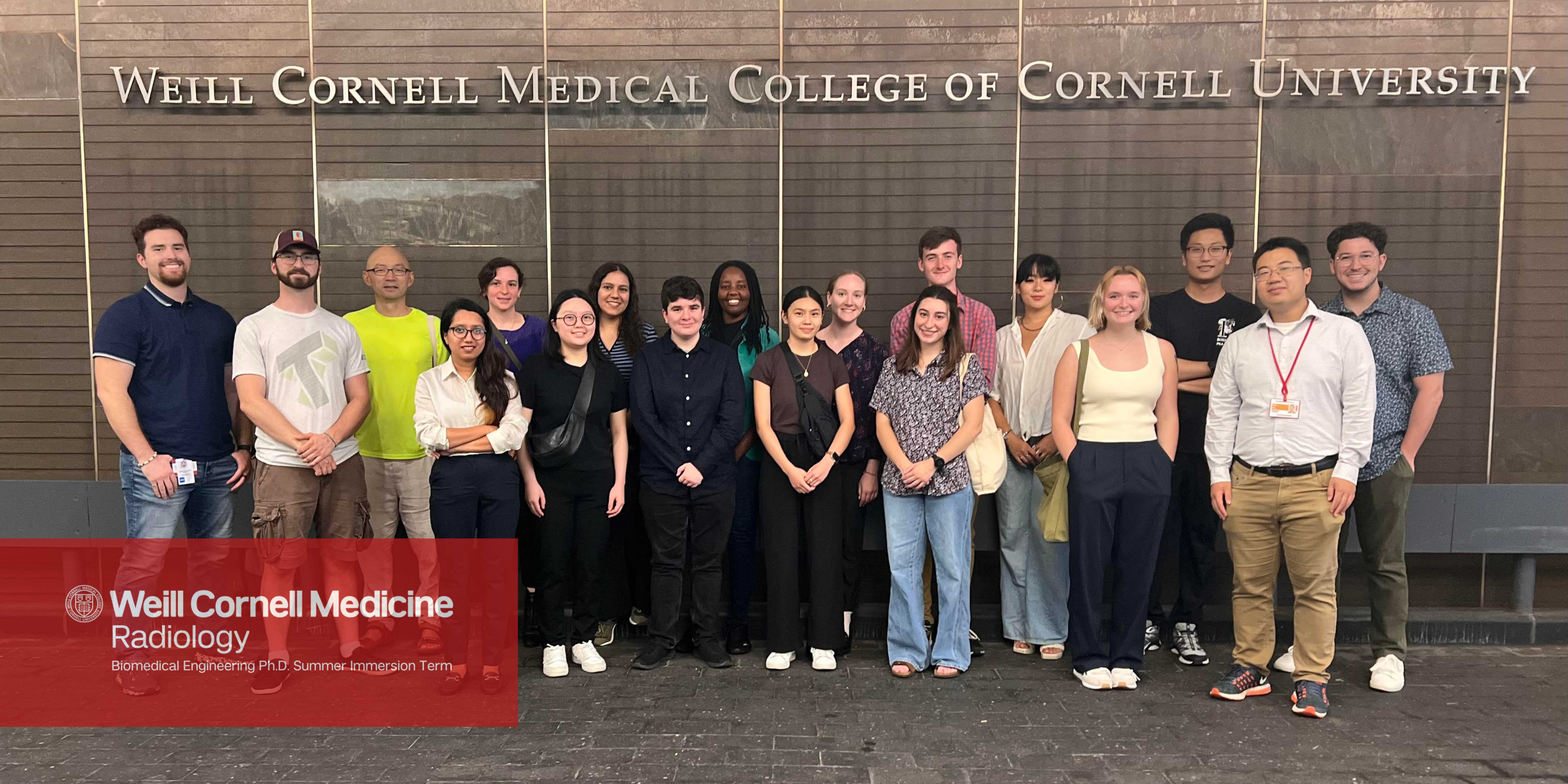
Founded in 2005, the Weill Cornell Medicine (WCM) Biomedical Engineering (BME) Ph.D. Summer Immersion Term is a nearly 20-year-old tradition. Over the years, Yi Wang, Ph.D. — WCM Professor of Physics in Radiology, Director of the MRI Research Insitute, Professor of BME at Cornell University, and, alongside Martin Prince, M.D., Ph.D., and Robert Min, M.D., one of three principal investigators on the Summer Immersion Term’s National Institute of Health (NIH) T35 grant — has revised and adapted and fine-tuned the program, creating an experience that improves with each passing year. And this year was no different.
“During the 2024 Summer Immersion Term, we emphasized the exposure to and discussion about AI in healthcare, particularly through help from Mert Sabuncu, Ph.D., Vice Chair, AI and Engineering Research, and George Shih, M.D., Vice Chair for Informatics,” says Dr. Wang. “AI healthcare is a rapidly advancing field, offering exciting opportunities for BME students to innovate and improve healthcare delivery.”
A collaboration between Cornell Engineering and the WCM Department of Radiology, the Summer Immersion Term takes place between students’ first and second years of graduate training, bringing 20 BME Ph.D. students from Cornell University in Ithaca, New York, to WCM’s New York City campus for hands-on clinical experience — where they learn not only the value of current medical technologies, but also the need for future developments. The idea? Unite engineering and medicine.
During the Summer Immersion Term, the connection between engineering and medicine moves from theory to practice, allowing students to see, in real time, the real-world benefits of marrying the two disciplines. Over eight hot New York City summer weeks, the students attend grand rounds, shadow clinical practitioners, and, under the direction of a mentor, participate in clinical-related research. Ultimately, the program informs their Ph.D. thesis research, inspiring a lifelong interest in biomedicine.
“Clinical summer immersion has both an immediate impact on students’ thesis research and a long-term impact on their careers,” says Dr. Yi Wang. “To hear from alumni — students who graduated a decade ago — about how exposure to neurology guides their current AI work. Well, that’s just extremely gratifying.”
Thankfully, the Summer Immersion Term doesn’t appear to be going anywhere anytime soon. In 2022, the NIH renewed the program’s T35 grant, making it a sort of, ahem, endless Summer Immersion Term.

